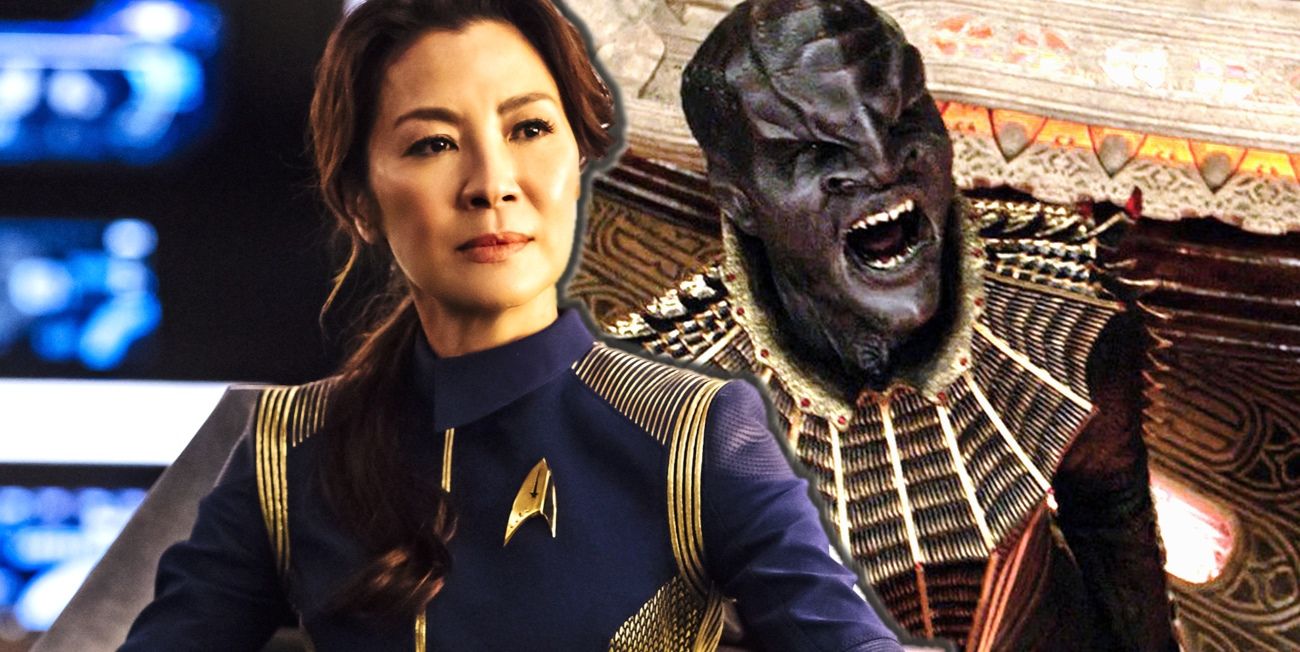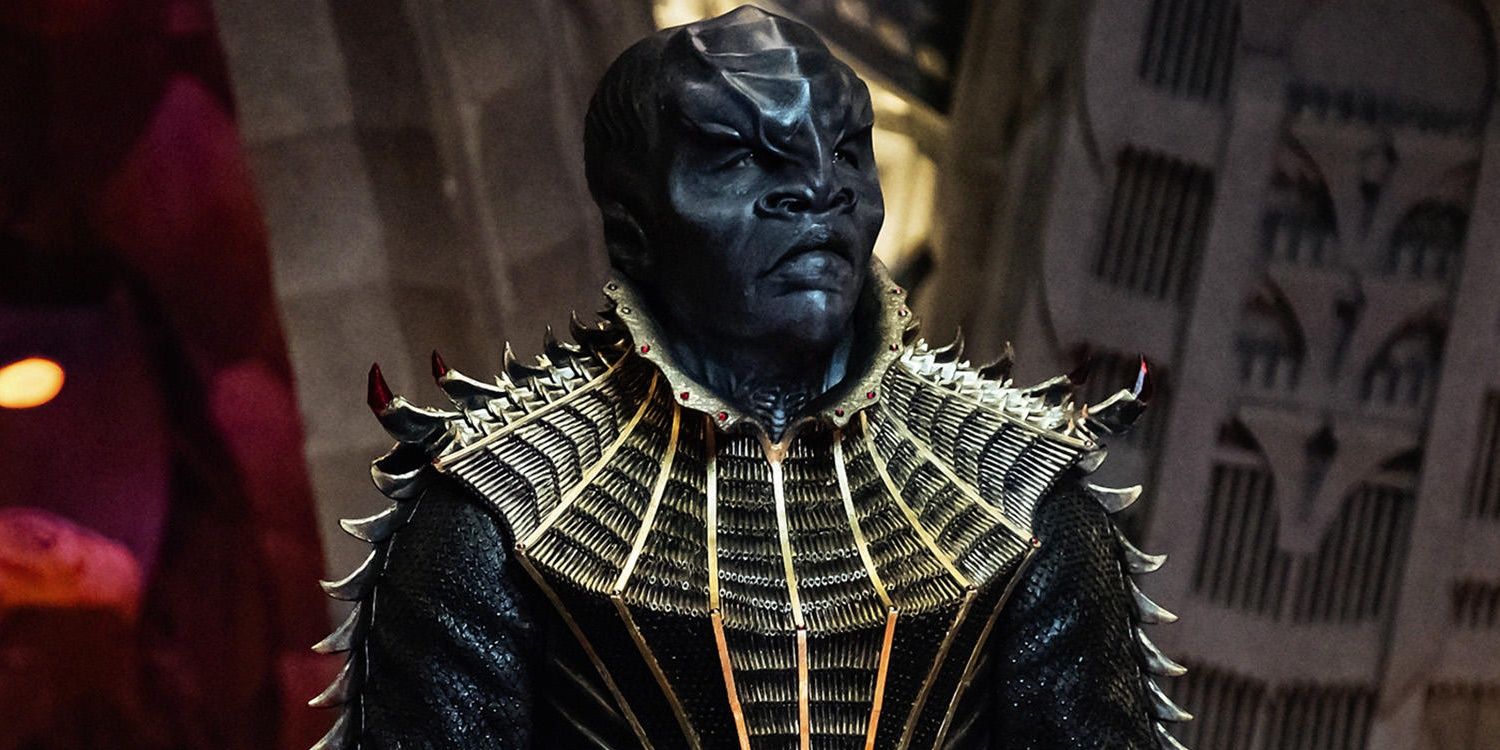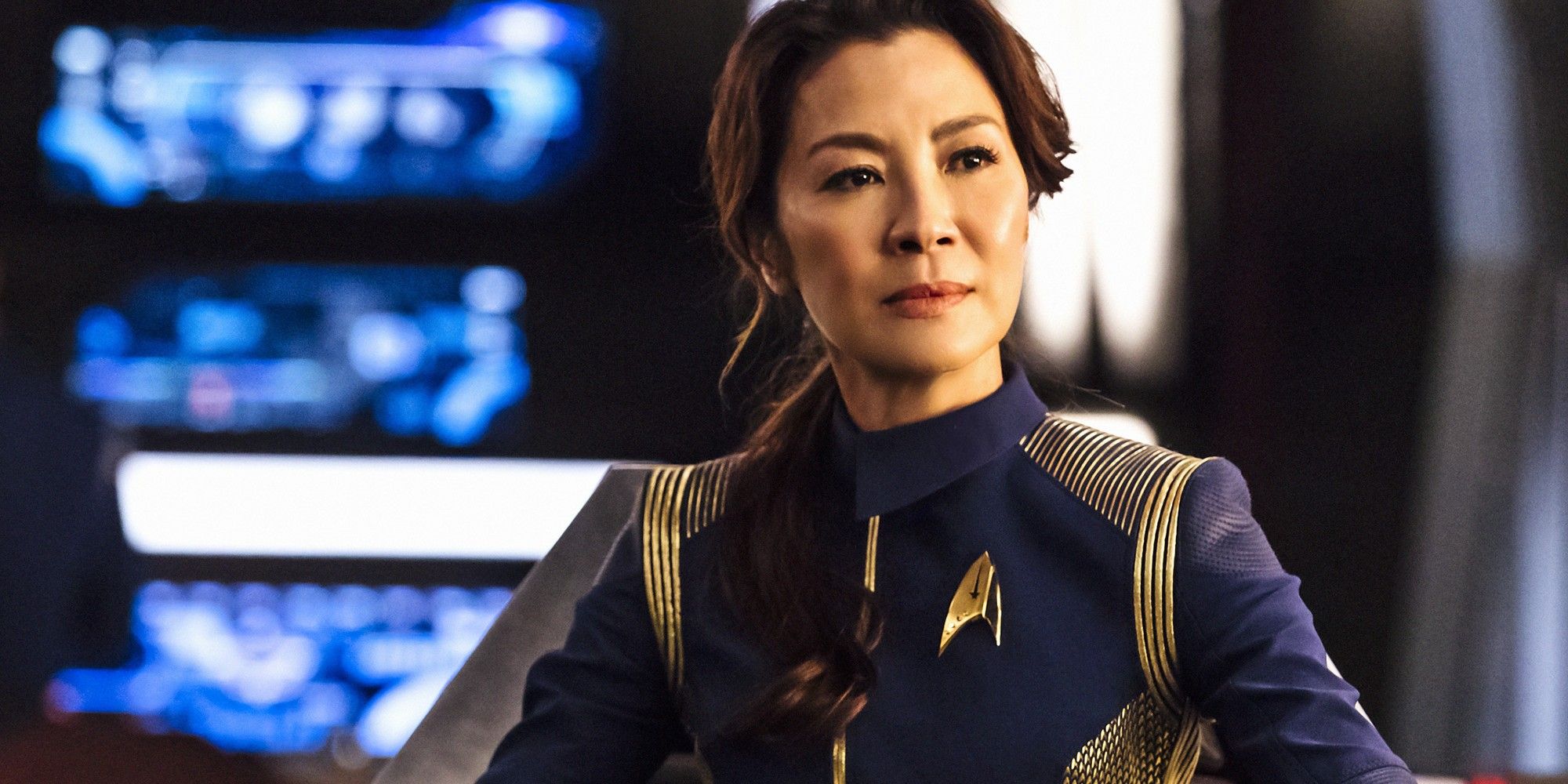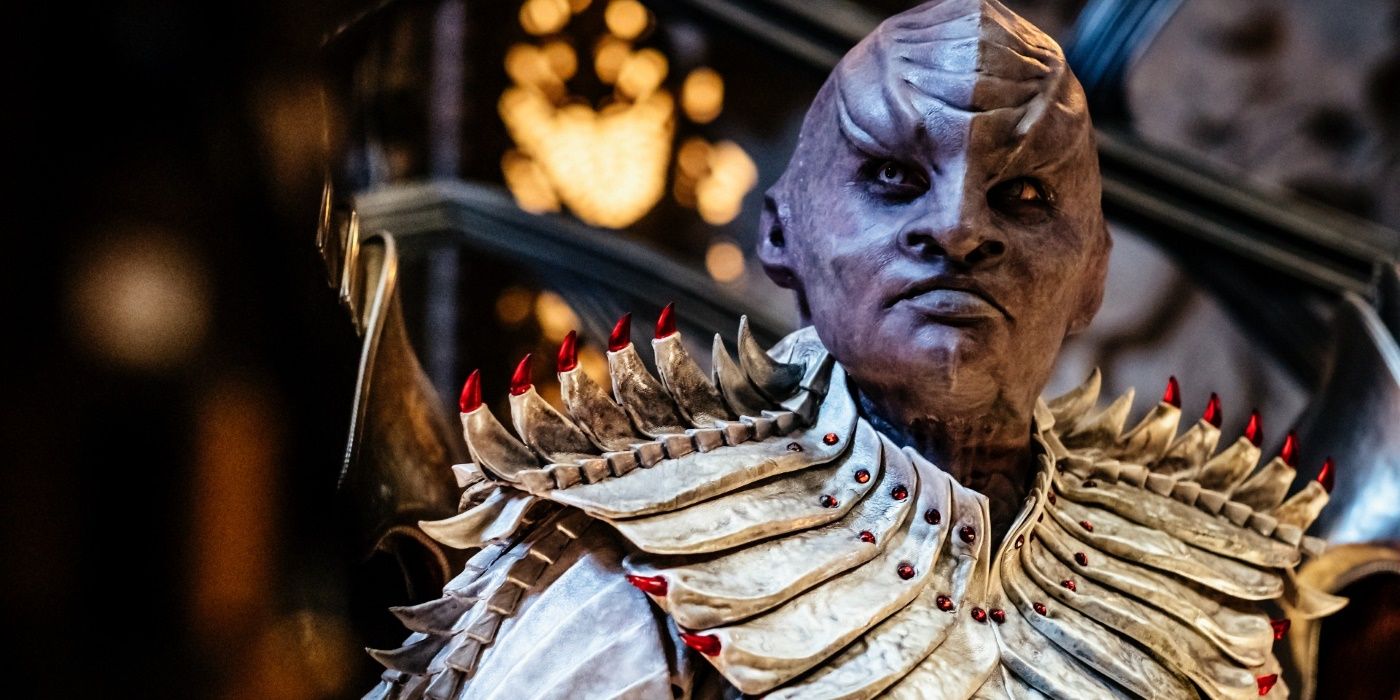WARNING: This article contains SPOILERS for Star Trek: Discovery Episodes 1 & 2
The ideals of Star Trek sure have changed, with the new CBS series Star Trek: Discovery committing multiple war crimes in its first night on the air. The act took place on premiere night, but fans who simply watched Discovery's premiere without signing up for the rest of the series via CBS All Access didn't get to see it for themselves. But those eager Trek fans (ourselves included) willing to sign up for the streaming service, and enjoy the second episode of the series watched as the heroes found a way out of their impossible standoff with the Klingons - thanks to some quick thinking concerning the enemy's dead. In the process, showing exactly why the Klingons will be RIGHT to hate the Federation this time around.
Apparently, the writers of Discovery have shown their version of Starfleet commanding officers violating current international law to suggest one of two possibilities. Either the Hague and Geneva Conventions of our current world are removed or weakened at some point in Earth's future, allowing war crimes to be committed to cheers among the 'good guys,' or they're not expecting audiences to care. It's possible that the heroic Captain Georgiou (Michelle Yeoh) will slide from cheers of victory to a court martial and sentencing, but in the meantime, one thing is clear. As much as Discovery may achieve Gene Roddenberry's vision for Star Trek diversity, the moral and political message of the show is based on more than its cast.
The Twist That Saved The Day, For Those Who Missed It
In case viewers need a quick refresher on the scene we're referencing, or potential viewers who have yet to watch the first episodes and are curious to see its stance on military protocol, the scene is a familiar one. Not only for the previous version of Star Trek, but the modern movie trilogy. The heroes of the USS Shenzhou are going about their duties when they suddenly (or eventually) stumble upon a Klingon armada. Specifically, a gathering of the noble Klingon Houses, united to forge a new Klingon Empire in opposition to the Federation... by launching an attack on its Starfleet vessels. War is the Klingons' specialty, meaning the Starfleet ships are crippled or destroyed, with the Shenzhou crew stranded and awaiting destruction from the Klingon flagship.
The first plan concocted by Lt. Saru (Doug Jones) is a dastardly effective one: the Shenzhou is unable to fire its torpedoes... but able to load them on a small transport, and detonate them once transported across space to the enemy ship. It's the kind of deception and ingenuity that Trek fans have come to expect, and Captain Georgiou is willing to carry out the exchange (and subsequent detonation) personally. A noble sacrifice, if it means her crew may live and escape.
Until, that is, the enemy forces under the Klingon commander T'Kuvma (Chris Obi) begin to collect their dead. As the battle has left them floating in the cold of space, he honors Klingon tradition by seeing them gathered, and prepared for a proper entombment "with his own hands." But before T'Kuvma can perform the ritual, his enemies - the show's heroes - plant an explosive core on (in?) one such soldier's dead body, crippling his ship so that they may infiltrate it and attempt to take him prisoner.
The Captain's Plan Constitutes (Multiple) War Crimes
We'll give the viewing audience the benefit of the doubt and say that, odds are, many people watching the scene unfold were given a moment's pause. A moment to ask if Captain Georgiou's plan to hide an explosive in an enemy soldier, and detonate it before he could be laid to rest was morally right. By no means evil, necessarily, but perhaps the kind of mature, complex content of Star Trek: Discovery previously teased. But with the subsequent explosion receiving nothing but cheers and smiles from the Shenzhou crew, it seems obvious that audiences are meant to respond the same way. And not, by any means, view the quick-on-her-feet captain as a war criminal committing an act that is still met with harsh derision in modern warzones.
Specifically, in smuggling an explosive device into the remains of an enemy soldier during what is clearly understood to be a collection of the dead, Captain Georgiou is in violation of not one, but several military and international laws. While she may have a case claiming that the extreme nature of her situation called for extreme actions, but the laws are nearly all clear - at least for today's world.
For starters, there's the agreements and definitions comprised of both Hague and Geneva Conventions and subsequent updates that constitute the International Humanitarian Law, and its Rule 113: Treatment of the Dead:
Geneva Convention IV
Article 16, second paragraph, of the 1949 Geneva Convention IV provides: "As far as military considerations allow, each Party to the conflict shall facilitate the steps taken … to protect [the killed] against … ill-treatment."
The military handbooks of the United States take as clear a stance as any on the subject of enemy dead, sharing the international belief that mistreatment or disrespect of a combatant's remains constitute a war crime if it is, in almost any way, avoidable. Yet there is also Rule 115: Disposal of the Dead, concerning the method by which remains are put to rest by either side of a conflict:
Geneva Convention I
Article 17, third paragraph, of the 1949 Geneva Convention I provides that the Parties to the conflict must "ensure that the dead are honourably interred, if possible according to the rites of the religion to which they belonged."
It's these agreements that render not only genocide or mass killings, but the burial of victims in mass, unmarked graves separate crimes. The clear ignorance of Discovery's characters to these beliefs would be worth discussing on their own, if the first episodes didn't include the Shenzhou's crew learning the specifics of Klingon funerary ceremony as part of the plot. It should also go without saying that if mistreating, mishandling, or disrespecting a soldier's body is considered a war crime and refusal of due burial, then detonating it along with countless others is an especially heinous act.
Whether or not the demands or circumstances of the story justify such a decision for each viewer, it's the kind of deception and dishonorable warfare rarely seen performed by the 'heroes' of a story - particularly without it being called out by someone among the cast. For those who specifically felt a bit uneasy given the 'booby trap' nature of the Klingon corpse-bomb - perhaps feeling that preying upon the pursuit of honor and ceremony constituted a special kind of villainy - world governments agree. That's why there's Rule 80: Booby Traps:
Protocol II to the Convention on Certain Conventional Weapons
Article 2 of the 1980 Protocol II to the Convention on Certain Conventional Weapons provides:
2. “Booby-trap” means any device or material which is designed, constructed or adapted to kill or injure, and which functions unexpectedly when a person disturbs or approaches an apparently harmless object or performs an apparently safe act."
Article 6 of the 1980 Protocol II to the Convention on Certain Conventional Weapons provides:
1. Without prejudice to the rules of international law applicable in armed conflict relating to treachery and perfidy, it is prohibited in all circumstances to use... booby-traps which are in any way attached to or associated with:
(i) internationally recognized protective emblems, signs or signals;
(ii) sick, wounded or dead persons;
(iii) burial or cremation sites or graves;
There are sure to be many viewers who scoff at the idea of imposing moral beliefs or laws upon a science fiction TV series like Discovery. But that will reveal a level of ignorance for the source material, and creative inspiration behind Gene Roddenberry's original series as a whole. For a show carrying the banner of tolerance, honor, military and scientific exceptionalism, and a brighter vision of the future, the fact that the morality of the ship's captain committing war crimes is a topic of discussion so soon is unsettling. One issue Star Trek fans will debate as was always intended.
Perhaps the time for such nitpicking ("nitpicking" meaning "whether a Starfleet captain operates in accordance with the Geneva Conventions") is over. Now it's time for a more modern, updated take on Star Trek. Apparently, one in which an opposing race isn't entitled to the same rights and respect that humans in power show to their own kind. Read whatever social commentary you wish into that.
The bottom line? The first two episodes of Star Trek: Discovery confirm that the Klingon Empire wants to wipe the Federation from existence. Only this time, the audience might understand their position.




